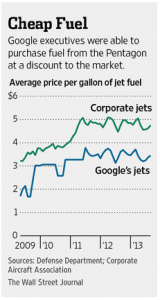I’m fundraising this week. Please support me if you can.
Yesterday, TV Globo published details of NSA spying on Brazil’s oil company, Petrobras, SWIFT, and financial organizations. Besides revealing that man-in-the-middle attacks are sometimes used, the report didn’t offer details of what the NSA was actually collecting. Its sources suggest NSA might be seeking Brazil’s leading deep sea drilling technology or geological information that would be useful in drilling auctions, but it is also conceivable the NSA is just trying to anticipate what the oil market will look like in upcoming years (this is one area where we probably even spy on our allies the Saudis, since they have been accused of lying about their reserves).
To some degree, then, I await more details about precisely what we’re collecting and why.
But what I am interested in is James Clapper’s response. He released this statement on the I Con site.
It is not a secret that the Intelligence Community collects information about economic and financial matters, and terrorist financing.
We collect this information for many important reasons: for one, it could provide the United States and our allies early warning of international financial crises which could negatively impact the global economy. It also could provide insight into other countries’ economic policy or behavior which could affect global markets.
Our collection of information regarding terrorist financing saves lives. Since 9/11, the Intelligence Community has found success in disrupting terror networks by following their money as it moves around the globe. International criminal organizations, proliferators of weapons of mass destruction, illicit arms dealers, or nations that attempt to avoid international sanctions can also be targeted in an effort to aid America’s and our allies’ interests.
What we do not do, as we have said many times, is use our foreign intelligence capabilities to steal the trade secrets of foreign companies on behalf of – or give intelligence we collect to – US companies to enhance their international competitiveness or increase their bottom line.
As we have said previously, the United States collects foreign intelligence – just as many other governments do – to enhance the security of our citizens and protect our interests and those of our allies around the world. The intelligence Community’s efforts to understand economic systems and policies and monitor anomalous economic activities is critical to providing policy makers with the information they need to make informed decisions that are in the best interest of our national security.
Let me take this extraordinary statement in reverse order.
In the fourth paragraph, Clapper reiterates the final defense that NSA defenders use: that we’re better than, say, China and France, because we don’t engage in industrial espionage, stealing technology with our spying. That may be true, but I suspect at the end of the day the economic spying we do might be more appalling.
In the third paragraph, he retreats to the terror terror terror strategy the Administration has used throughout this crisis. And sure, no one really complains that the government is using financial tracking to break up terrorist networks (though the government is awfully selective about whom it prosecutes, and it almost certainly has used a broad definition of “terrorism” to spy on the financial transactions of individuals for geopolitical reasons). But note, while the Globo report provided no details, it did seem to describe that NSA spies on SWIFT.
That would presumably be in addition to whatever access Treasury gets directly from SWIFT, through agreements that have become public.
That is, the Globo piece at least seems to suggest that we’re getting information from SWIFT via two means, via the now public access through the consortium, but also via NSA spying. That would seem to suggest we’re using it for things that go beyond the terrorist purpose the consortium has granted us access for. Past reporting on SWIFT has made it clear we threatened to do just that. The Globo report may support that we have in fact done that.
Now the second paragraph. James Clapper, too cute by half, asserts, spying on financial information,
could provide the United States and our allies early warning of international financial crises which could negatively impact the global economy
Hahahahahaha! Oh my word! Hahahaha. I mean, sure, the US needs to know of pending financial crises, in the same way it wants to know what the actual versus claimed petroleum reserves in the world are (and those are, of course, closely related issues). But with this claim, Clapper suggests the US would actually recognize a financial crisis and do something about it.
Hahahahaha. Didn’t — still doesn’t — work out that way.
Read more →



